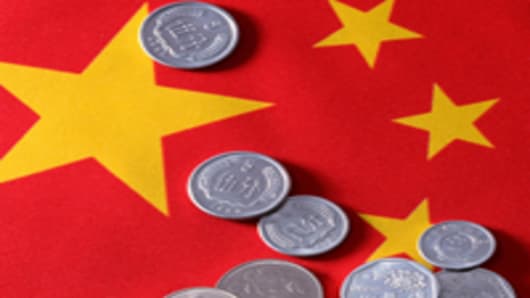China needs to allow the value of its currency to appreciate but its financial regulators should do so at a pace that will not hurt its economy, according to Pascal Lamy, Director-General of the World Trade Organization.
In an interview with CNBC, Lamy said it is the policy of the Chinese authorities to progressively internationalize the yuan and that they are correct to proceed in a step-by-step manner.
“After all, not long ago the Chinese financial system was, let's say, fragile,” he said. “On this, I share the sort of caution of Chinese financial authorities. I'm not sure it's now solid to the point of opening in one day or in one night its foreign account.”
The yuan has been trading near all-time highs against the dollar this year, guided by a stronger mid-point by the People's Bank of China, and looks set for an appreciation of about 3 percent for 2012, according to a Reuters story. The currency gained about 4 percent in 2011.
Lamy said that a constant peg between the yuan and the U.S. dollar “doesn't have any real rationale. “It's quite logical that an emerging economy who's getting more powerful has a currency which appreciates as it grows its economy,” he added.
Trade with China and the value of the yuan have surfaced once again as hot-button issues with Republican Presidential Candidate Mitt Romney accusing China of cheating. Romney said he would label the country a currency manipulator for keeping the value of the yuan artificially low, if he became President.
China has been taking steps to rebalance its economy by boosting domestic consumption and reducing reliance on exports, Lamy said. Earlier in March, China reported that its trade deficit totaled $31.5 billion in February, the largest in at least a decade. Imports outstripped exports from the country's factories, which have been struggling amid a downturn in demand from its two biggest trading partners — the European Union and the United States.
China’s trade surplus came in at 2.1 percent of economic output in 2011 while the trade deficit of the United States was 4.8 percent of its gross domestic product.
Stephen Roach, former non-executive chairman of Morgan Stanley Asia, shares the view that China's current account and trade balances with the world are much closer to equilibrium than they've been in a long time. The country's current account surplus with the world fell to 2.8 percent of gross domestic product (GDP) last year from over 10 percent in 2007.
The yuan could become a global reserve currency if China implemented market-oriented changes and opened the capital account eventually, Christine Lagarde, managing director of International Monetary Fund said over the weekend when she visited China.


